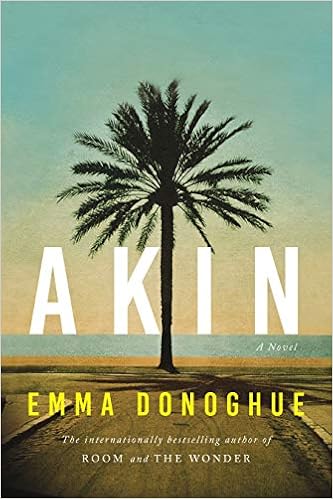Noah Selvaggio, a retired chemistry professor living in New York, decides to make a trip to Nice, France, for his 80th birthday. He hasn’t been back since he was four years old. His plans are altered when he becomes a temporary guardian for his 11-year-old great-nephew Michael. Since there is no one else to care for Michael, the childless widower agrees to look after him in the short term and takes him to France.
While in France, Noah
tries to uncover the significance of some photos his mother left behind. They were apparently taken during World War
II in Nice, after Noah’s mother had sent him to the U.S. Why did his mother abandon him for two
years? With the help of the tech-savvy
Michael, Noah is able to find some answers to his questions.
The mystery
surrounding Noah’s mother is not difficult to solve. I found that Noah tends to jump to
conclusions when other possibilities are so obvious. He talks about “’the law of closure. Like closing
a gap. The viewer fills in what they don’t
see, what’s missing.’” The problem is
that Noah does not behave like an 80-year-old man who was a scientist. Considering his age and his background, he should
certainly be more cautious and considered when making inferences.
It is the character of
Michael that makes the novel. His
behaviour rings so true. He’s
street-wise and defiant; he’s often foul-mouthed and tends to be glued to his
cell phone on which he constantly plays games.
As would be expected of a boy his age, he loves scatological humour. His attention span tends to be limited. Beneath the bravado however, there is a child
who has experienced loss and has a number of stresses in his life.
The repartee between
Noah and Michael emphasizes the gulf between the two. There is the obvious age gap but there are
other differences as well. Noah would be
considered wealthy, living in a tony part of the city, whereas Michael comes
from an impoverished background and has lived in a rough neighbourhood where
safety is a major concern. It is
inevitable that conflicts and misunderstandings arise, especially because Noah
tends to make assumptions about Michael’s upbringing.
There is also humour
because of their different interests.
Michael’s attire makes little sense to Noah: “Michael’s T-shirt said WINTER IS COMING,
which seemed belated, in February.” The Game of Thrones reference means nothing
to Noah. Likewise, Noah’s old fedora has
Michael commenting, “’What’s up with that hat?’” When Noah explains that the hat is an
heirloom, Michael asks, “’What’s an air loom?’” Noah tends to be pedantic and Michael just
tunes out.
As is expected, the
two learn from each other. Though
Michael often seems to be inattentive, he proves that he has learned some of
Noah’s lessons. Noah realizes his biases
and decides that there may be little to mark his time on earth, “only any
individual’s short, incalculable tally,” but he can perhaps help Michael: “But really all Noah was attempting to do was
fill a gap; throw his ungainly self down so the kid could cross over the
abyss. Weren’t we all of us bridges for
each other, one way or another?”
I’ve read most of Emma
Donoghue’s books. I’m not sure I’d rank
this one among her best, but it is brisk and entertaining. Though somewhat predictable, it has a truly
authentic character in Michael, and for him and his verbal exchanges with Noah,
the book is worth reading.

No comments:
Post a Comment